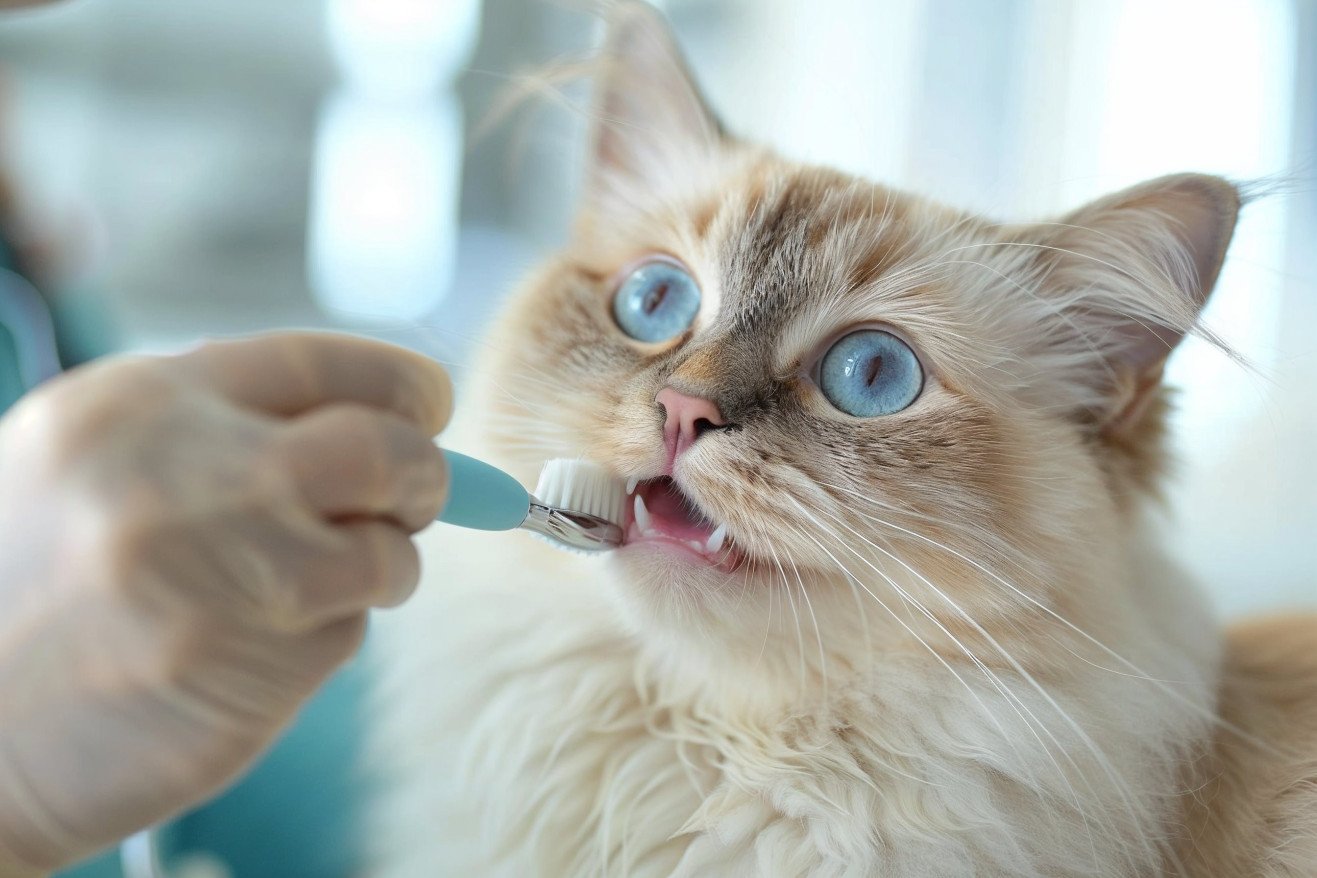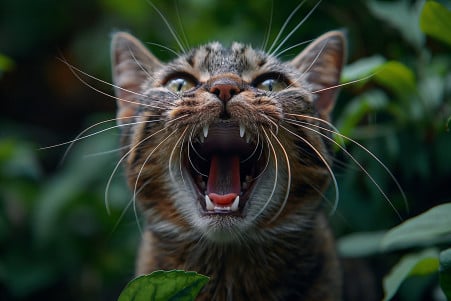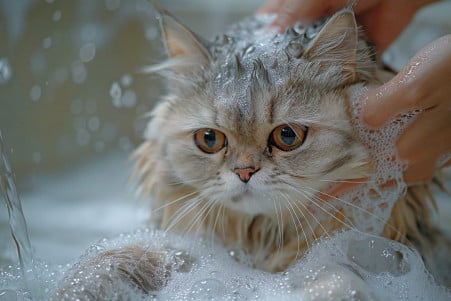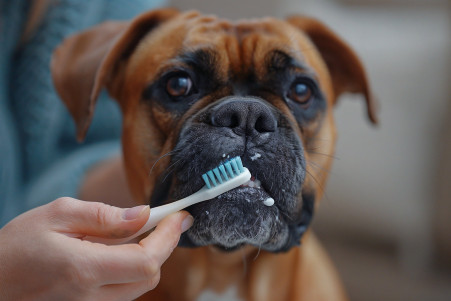How to Brush Your Cat's Teeth: A Vet's Guide
14 May 2024 • Updated 13 May 2024

If you're a cat owner, you may have asked yourself how to brush your cat's teeth and keep their mouth healthy. The answer is that you should brush your cat's teeth gently a few times a week using a pet toothbrush with soft bristles and toothpaste that's safe for animals. In addition to brushing, you can also use dental treats and chews to help keep your cat's teeth clean and prevent plaque and tartar from building up.
This article explores the best ways to brush your cat's teeth based on expert advice from veterinarians and animal behaviorists. This advice is based on research in the field of veterinary medicine as well as the experiences of cat parents. You'll also find tips for making the process more manageable for you and your cat and information about why it's important to take care of your cat's teeth. By being patient and using positive reinforcement, you can help your cat maintain a healthy smile.
How can you properly brush your cat's teeth?
How to Brush Your Cat's Teeth
Training a cat to accept teeth brushing takes time and a lot of positive reinforcement. According to VCA Animal Hospitals, you should start by handling your cat's mouth and then rewarding them with treats to help them get used to the experience. You should also work on getting your cat used to having their lips pulled back and having a soft cloth or gauze rubbed along their gum line.
To brush your cat's teeth, you will need a soft-bristled toothbrush made for cats, pet-safe enzymatic toothpaste (never use human toothpaste, which can be toxic), and lots of patience. According to Purina, you should start by letting your cat smell and taste the toothpaste and lick it off the brush.
When you're ready to brush, you should gently pull back your cat's lips and use circular motions to brush the outer surfaces of their teeth and their gum line, starting with the larger teeth. According to Cat Friendly Homes, you should aim for 2-3 minutes of brushing per session. However, you should start with very short sessions, about 30 seconds on each side, and work up to longer sessions.
Make sure to reward your cat with treats and praise. According to Dr. Bert Gaddis of Animal Dental Specialists, you should never push your cat to the point of irritation. The Veterinary Oral Health Council suggests that you start brushing your cat's teeth when they are 8-12 weeks old to help them get used to the practice.
How to Tell If Your Cat Needs Dental Care
Because cats can't tell you when they're experiencing pain, many cat owners may not realize their pet is suffering from dental issues. According to the Cornell University College of Veterinary Medicine, between 50 and 90% of cats over 4 years old have some form of dental disease. The most common dental issues in cats are gingivitis, periodontitis, and tooth resorption.
As listed by PetMD, some of the most common signs of dental issues in cats include bad breath, drooling, pawing at the mouth, and difficulty eating. In addition to these symptoms, cats may also exhibit visible signs of dental issues, such as tartar, plaque, discolored teeth, and receding gums. VCA Animal Hospitals also explains that dental disease can cause painful issues like gingivitis, periodontitis, and tooth resorption, as well as bone and tissue damage.
Dental issues can only be diagnosed and treated by a vet through a comprehensive dental exam and X-rays performed under anesthesia. Hastings Veterinary Hospital suggests that cats should have annual dental exams and cleanings as part of their regular preventive care. Catching and treating dental issues early can help ensure that your cat doesn't experience pain and that the issue doesn't progress to a more serious condition.
Other Ways to Keep Your Cat's Teeth Healthy
In addition to brushing, there are other ways to keep your cat's teeth healthy. PetMD suggests dental treats, chews, and toys that can help reduce plaque and tartar between brushings. Purina notes that dental cat foods and water additives can also help improve oral health.
The Veterinary Oral Health Council (VOHC) certifies products that have been shown to reduce plaque and tartar. As Dr. Bert Gaddis of Animal Dental Specialists notes, the best results come from a combination of at-home dental care and regular professional cleanings.
When you're trying out new dental products, Wellesley Natick Veterinary Hospital suggests a positive, gradual approach to help your cat get used to them. With time and positive reinforcement, you can help your cat get comfortable with dental care.
Positive Reinforcement and Patience Are Key
Because cats can be so sensitive, it’s important to take a slow, patient approach to introducing dental care, so that you can build trust and comfort with your pet, according to VCA Animal Hospitals. Positive reinforcement is also important to help ensure that the experience is a positive one for your cat. Purina suggests letting your cat smell and even lick the toothbrush and toothpaste to help them feel more comfortable.
You should also be on the lookout for signs of stress or discomfort during the brushing process. According to Dr. Bert Gaddis of Animal Dental Specialists, it’s important to keep sessions short and end on a positive note, even if you’re only able to brush a few teeth at first. The Veterinary Oral Health Council recommends that you start a brushing routine with kittens between 8-12 weeks of age to help them develop good dental habits early in life, which can help them in the long run.
Cat Dental Care: Start Early, Last a Lifetime
Starting a dental care routine for cats as early as 8-12 weeks of age is important for setting them up for a lifetime of good oral health. If dental care is neglected, cats can suffer from painful issues like gingivitis, periodontitis, and tooth resorption, and they may be more likely to experience other health problems.
Keeping a cat's teeth healthy is something that will need to be done throughout their life, and it will require a commitment from the cat's owner. It's also something that should be part of a cat's overall health plan, which should include regular veterinary care. A veterinarian can help cat owners come up with a dental care plan that's tailored to their cat's specific needs.
Cats can't take care of their own teeth, so it's up to their owners to make sure they're prioritizing their oral health. By doing this, cat owners can help ensure that their pets don't have to deal with painful dental issues and can live long, happy, healthy lives.


